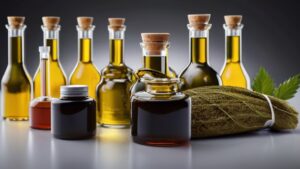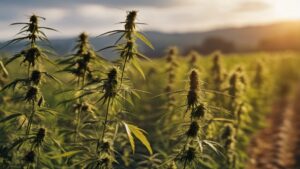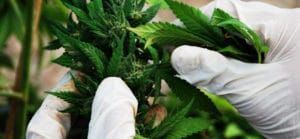Industrial Hemp Genetics
The Hemp Seed and Protecting Your Hemp Intellectual Property
Industrial hemp’s new status as a product regulated by the U.S. Department of Agriculture has made intellectual property protection available for plant breeders developing hemp genetics. This groundbreaking move for the growing hemp industry offers protection for seed-propagated hemp genetics through the U.S. Plant Variety Protection Act, a law that gives breeders exclusive control over seed- and tuber-propagated varieties. So, now your asking, “How can I protect my Hemp Intellectual Property?” and we have found a group that not only has the answer, they have a wonderful process to help you achieve the protection you want and need.

Protecting Your Hemp Intellectual Property
The non-profit organization Agricultural Genomics Foundation (AGF) and The Fat Pig Society (FPS) want to invite you to participate in a third party neutral project that will protect hemp farmers by accelerating the identification, validation and listing of clonally maintained CBD hemp plants. We intend to help identify hemp plants with the highest production and the lowest risk, while ensuring that your Intellectual property rights and royalties are protected.
Intellectual property (IP) protection for hemp varieties is rapidly becoming the new hot spot in the hemp green rush. At the same time, hemp regulators are cracking down on the sales of seeds and clones that put farmers at risk. Regulations that mandate hemp to be a certified variety as defined by the Association of Official Seed Certifying Agencies (“AOSCA”) has already passed in many States.
The Hemp industry needs a third party neutral Certification organization, like Underwriters Laboratory Certification for electrical appliances. An unsafe appliance can kill a consumer, and high THC hemp can kill a farm.
We established a simple two-step process in order to participate:
- Sign the attached “Material transfer agreement” and pay the $175 fee per plant ($165 for >100; $150 for >1000). Please make checks payable to Fat Pig Society with Genomic Selection on the Memo line.
- Assure seed delivery by May 15th, 2020 or clone delivery by June 1st, 2020 to the following address: Fat Pig Society 317 North Hollywood Street Fort Collins, CO 80521. All clones must be pest free.
Our team will cultivate your plants in the Certified Organic container test field, and with the Organic Integrated Pest Management developed by the Colorado State University (CSU). Thus, all of the plants in our program will be USDA certified organic.
You will receive two (2) copies of each plant that will be propagated and clonally maintained in vegetative state that will serve as your future foundation plant stock. You will also receive a copy of the chemotype testing results, and a copy of all of the phenotypic (physical) traits we measured. This data contains all the necessary information to enter the Colorado Certified Hemp trials, file for a listing with the Association of Official Seed Certifying Agencies (AOSCA) and to file for Intellectual Property at USDA/PVP or USPTO.
Besides being part of the first-of its kind program in the entire country, other benefits of participating in this project include:
-We can identify if you were cross pollinated with marijuana, kill them, and return the low risk plants for breeders to restart your seed line (or clones).
– Our project will help you shorten the path to seed stabilization by growing a seed line and allow you to pick out those closest to the breeding target for the next breeding cycle.
– You can decide if you want to proceed to file IP or AOSCA, and we will provide the application materials, and all of the necessary information about filing fees estimates, and legal costs. Please Note that we can not fill out applications for plants that test >0.3% THC.
– the data collected about your plants will be part of scientific studies conducted by researchers from the University of Colorado (CU) Boulder in collaboration with AGF.
– If we identify a patentable clone variety, you can proceed to full commercialization, Phase 2, of this program. All participants will receive the estimated costs (including the estimated legal fees) and all forms for this next step. Phase 2 includes: Filing for Intellectual property protection- IP; filing for variety listing with AOSCA; entry in the Colorado Certified Hemp program; plant genome sequencing with posterior analysis by scientists from CU Boulder; patent defense through gene sequencing to identify unauthorized use; and field trials to identify secondary factors like cannabinoid yield per acre, insect and disease resistance, terpenes, etc.
For more information please Contact – Iginia Boccalandro
Phone: 970-325-6556
Email: fatpigsociety@gmail.com








2 thoughts on “Industrial Hemp Genetics Project”
Is this the same company as hemp stock?
Marvin
No. Hemp.com, Inc. has been a privately held company since it was formed in 1998.